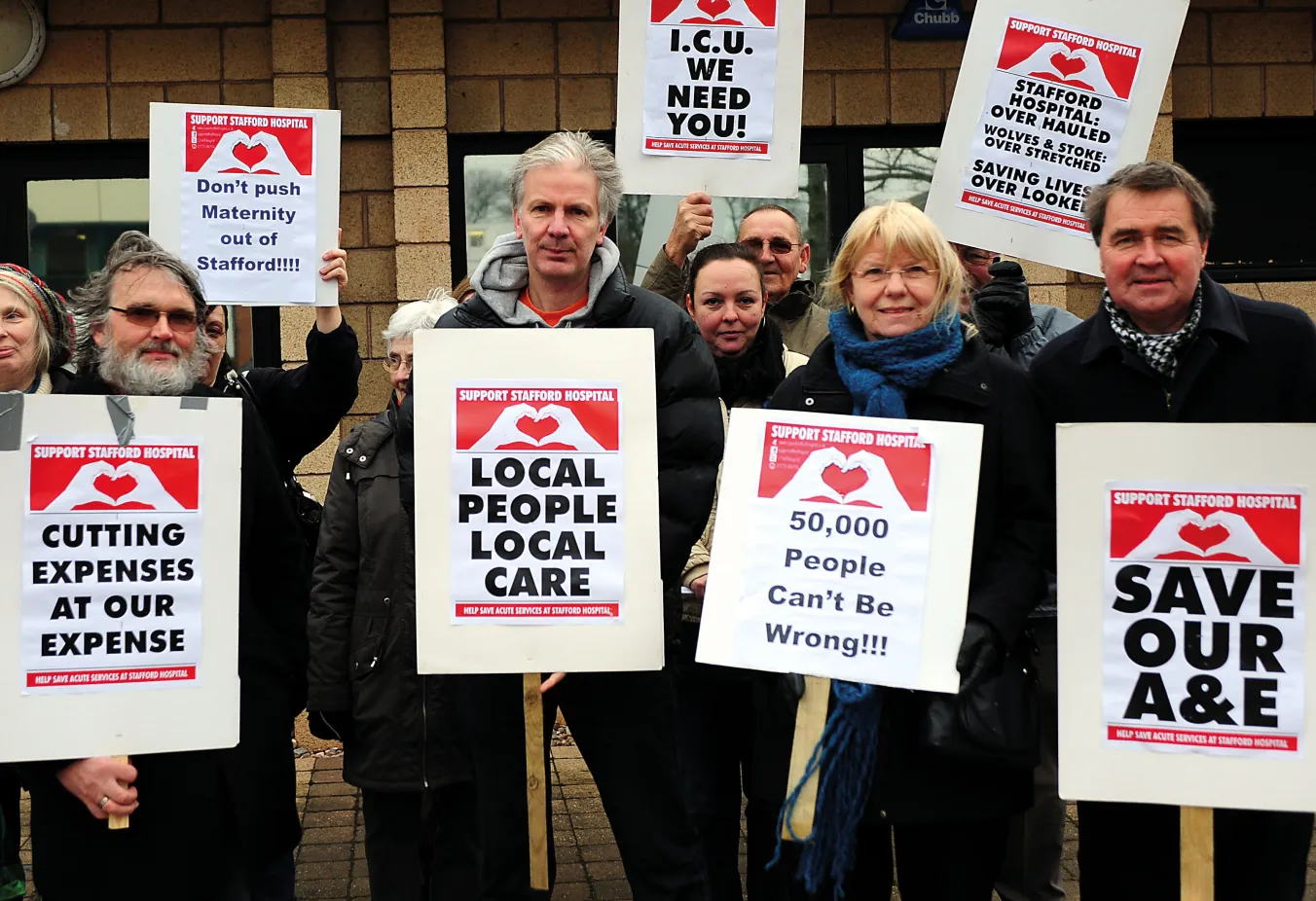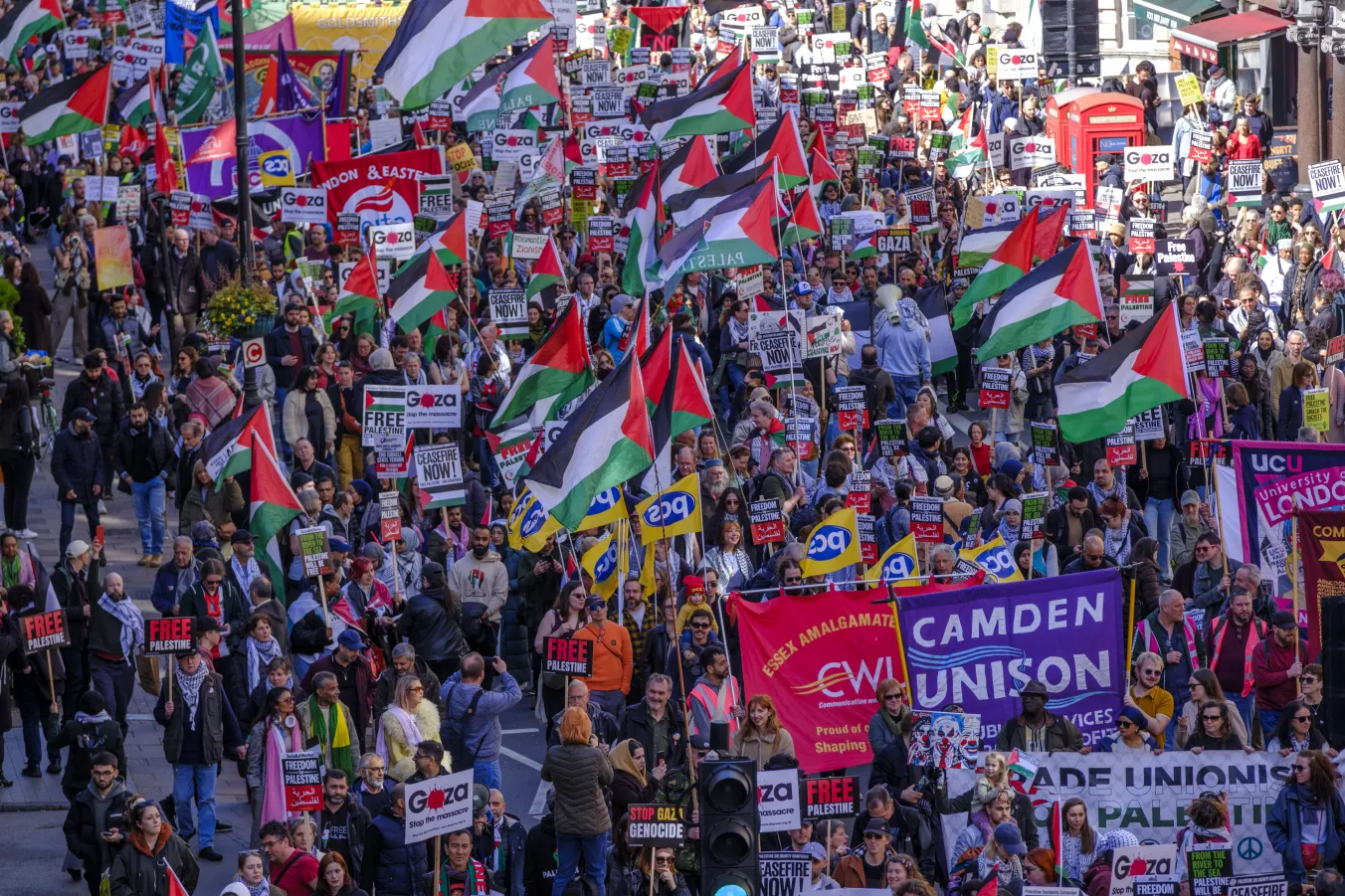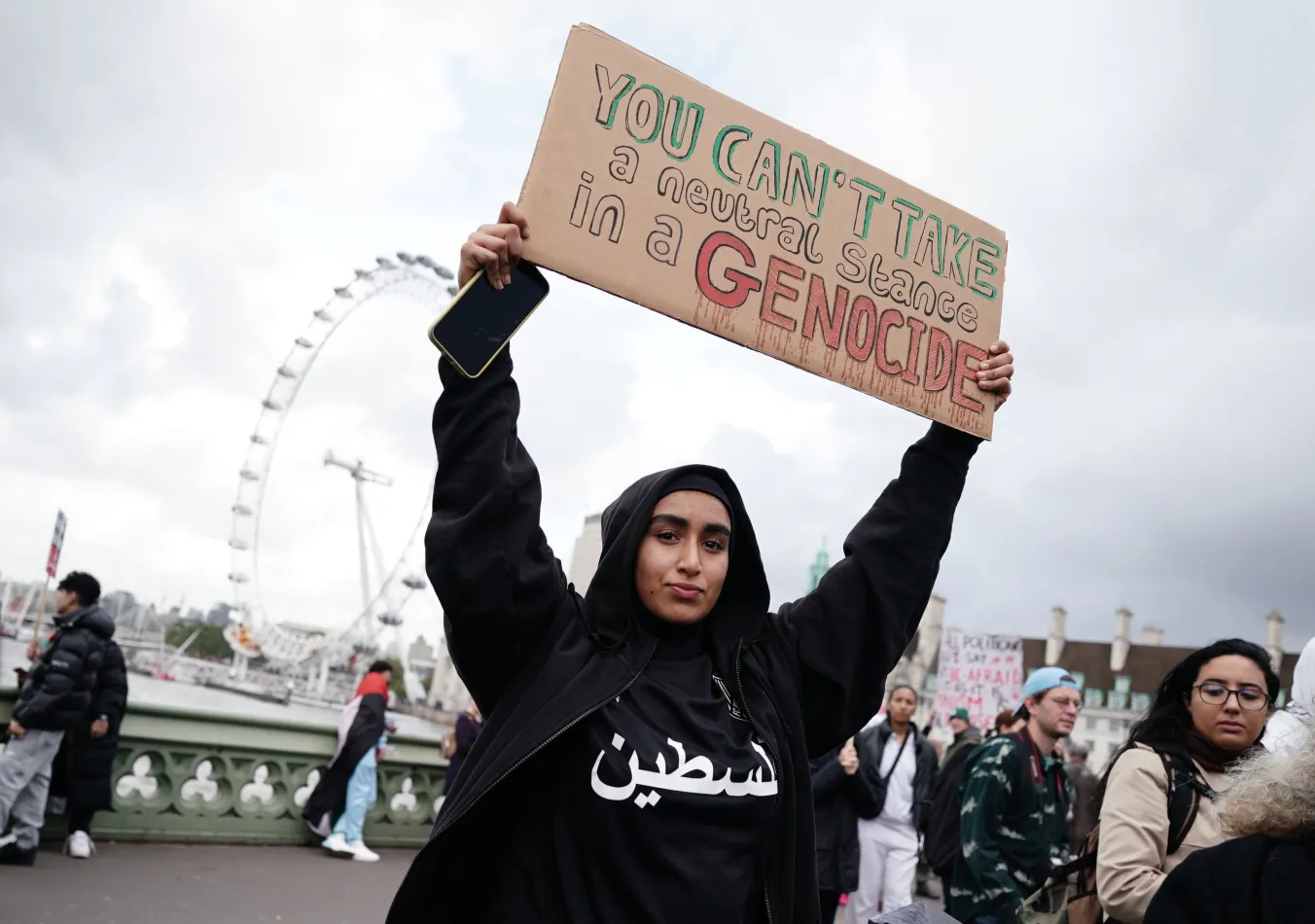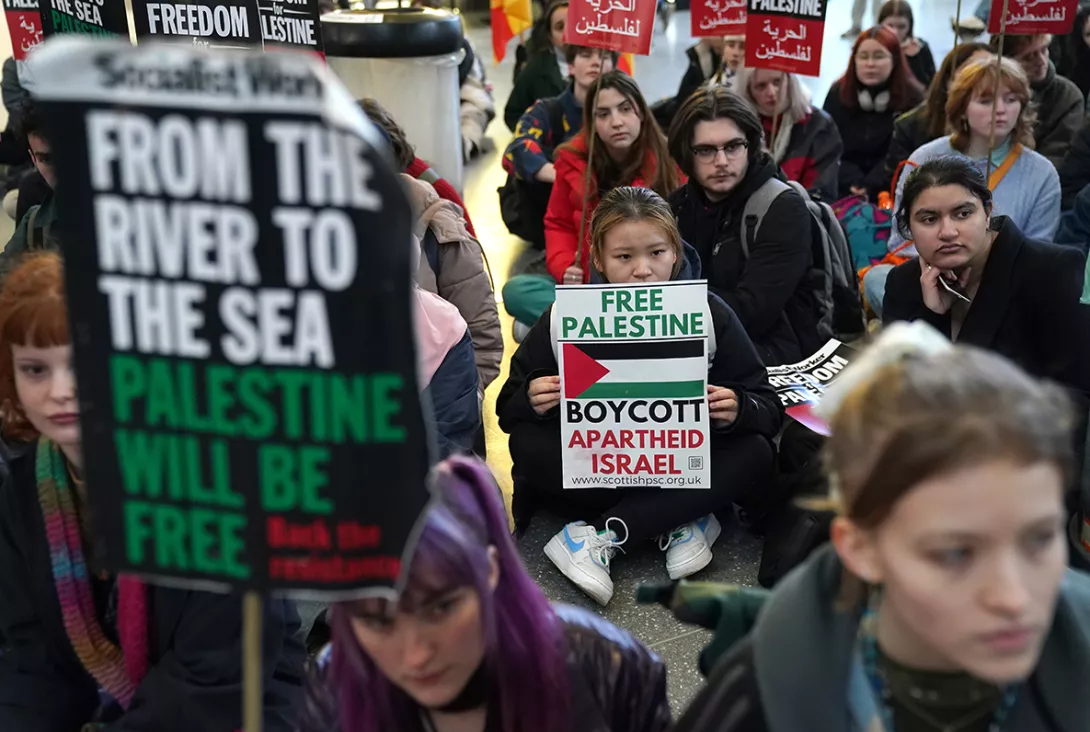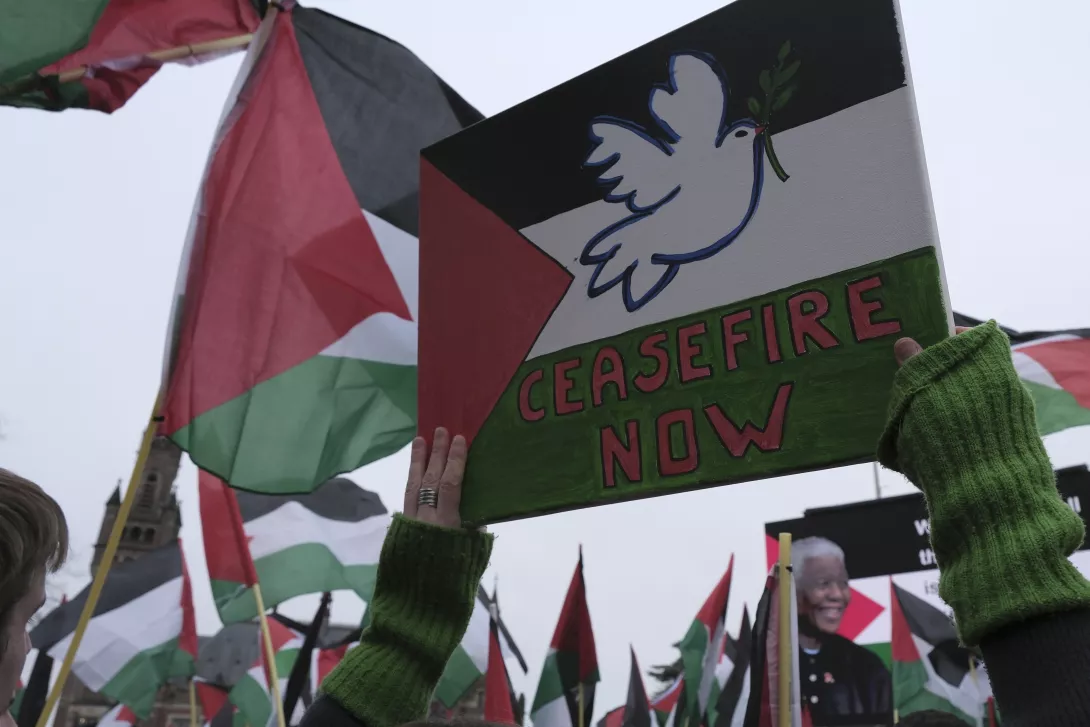
LAST week, the government’s Economic Activity of Public Bodies (Overseas Matters) Bill, better and more accurately known as the Anti-Boycott Bill, passed its third reading in the Commons despite a rebellion by a number of Tory MPs horrified at the attack on free speech and peaceful protest that it represents.
The Bill aims to ban councils and other public bodies boycotting, disinvesting or sanctioning any country unless the national government also does, depriving local authorities of a vital way in which they can represent the interests of their residents and have an international influence for good.
So profound is the attack on free and democratic speech that it even bans councils from saying they would back a boycott if they were able to.
But the Bill leaves no doubt about where it is really aimed: it specifically excludes Israel and the Occupied Palestinian Territories from even national government action, banning ministers from ever removing the ban on sanctions against Israel, no matter what actions Israel may ever commit in future — and as we have seen in South Africa’s “airtight” case against Israel before the International Court of Justice (ICJ), the state of Israel is all too ready to resort to war crimes to achieve its ends.
In large part this Bill is a reaction to the success of Leicester City Council — the introduction to the Bill says so explicitly — in defeating legal attempts in 2018 to force it to end its boycott of goods, under the grassroots “boycott, divestment and sanctions” campaign, from illegal Israeli settlements until Israel complies with international law and ends its illegal occupation.
Arguably, Leicester’s stance has been thoroughly vindicated by events of the last few months, in which Israel has launched what South Africa and many UN bodies have called “genocidal acts” on Gaza and which has killed hundreds in the West Bank, where Hamas is not active, protecting Israeli settlers as they beat and even kill Palestinians trying to go about their lives peacefully.
The Netanyahu regime’s war crimes since October 7 are not limited to charges of genocide by any means, with crimes against humanity, collective punishment and more seeming to take place daily.
Yet while Leicester and other councils have been shown to be doing the right thing, it can be argued that the government has found itself, yet again, on the wrong side of the issue, bringing in a new law to side with the oppressor against the oppressed and giving the Israeli regime licence to kill tens of thousands and commit any war crime with impunity.
Many in Leicester East back the council’s actions and bitterly oppose Israel’s crimes against Palestinians and the illegal settlements whose proliferation has only accelerated. The Anti-Boycott Bill, if it becomes law, will prevent Leicester and councils like it from carrying out the will of the voters who elected them, tying the hands of those who want to take principled action and enforcing the will of a British government that has shown it prizes geopolitical and economic ends above the lives of tens of thousands of innocent children, women, teachers, doctors, aid workers and journalists.
It is a Bill designed to hobble democracy and decency and to subjugate local British democracy to the actions and wishes of a foreign, occupying power. Arguably, it is also intended to circumvent the will of the court, since Leicester City Council comprehensively won its case.
There is a straightforward reason that the Israeli government expends so much time, effort and funds to fight Boycott, Divestment and Sanctions internationally and that the British Establishment feels the need to make laws to forbid it. BDS works.
A boycott, divestment and sanctions campaign lasting almost three decades was a vital factor in bringing down South African apartheid — and boycotts by local governments played a crucial role in pressuring the Thatcher government into adopting boycott as a national policy.
South Africa knows all about the power of such a peaceful but resolute campaign and the results it can achieve without bloodshed.
The BDS campaign against Israel and the companies who support it, is just as powerful, which is why Israel established its Ministry of Strategic Affairs with a specific brief to delegitimise the campaign.
BDS has hit Israel hard for years and has accelerated since Israel began the killings, slaughter and forced displacement of Palestinians in Gaza. Workers in ports around the world are refusing to load or unload Israeli and Israel-bound ships; academic and student associations in a variety of countries — including the US — have voted to back the campaign and have refused funding from Israeli institutions; Veolia divested its Israeli business because BDS campaigns were costing it billions in lost contracts; and just as anti-apartheid artists boycotted South Africa, many have endorsed a cultural boycott of Israel and have cancelled or refused to agree events there.
Companies like McDonald’s and Starbucks have admitted suffering a serious impact on their profits because of the widespread boycott of their products and services because of their perceived support for the Israeli regime.
And even when Israel and its supporters attack the people and organisations making a principled stand, the publicity serves to raise public awareness of Israel’s injustices against Palestinians — an awareness now higher than ever.
This is so effective that a 2018 article in Israeli newspaper Haaretz described every Israeli reaction, crackdown, expulsion and legal attempt to ban BDS, even the creation of the Ministry of Strategic Affairs itself, as a “success” of the BDS campaign — because, far more importantly than the economic impact of the boycott, the campaign was forcing Israel to shred its claims to democracy and liberalism in front of the eyes of the world.
We have surely seen more than enough of the Tories’ lack of respect for law and accountability in their attempts to denigrate South Africa’s forensically compiled genocide case against Israel at the International Court of Justice.
Yet even some Conservative MPs have stepped forward to express their horror at Sunak’s Bill. Kit Malthouse described it “an illiberal and draconian” attack on non-violent protest and freedom of speech at the very moment such protests need to be supported and enabled.
South Africa’s prominence, having invoked the Genocide Convention against Israel, is a perfect reminder of the importance of boycott, divestment and sanctions in ending injustice — and of the horrors of the injustices that need to end in Palestine.
Yet the government is refusing to support South Africa’s case against a country that has killed more than 12,000 Palestinian children in just three months — despite only seven weeks ago putting its signature to Gambia’s genocide case at the International Court of Justice in The Hague, against Myanmar, specifically because of Myanmar’s treatment of children.
The government’s assault on the peaceful campaign of boycott, divestment and sanctions, to protect an apartheid regime, brings shame on Britain and its political system. Even to attempt to pass this Bill is an international scandal.
Everyone who wants to see an end to the genocide in Gaza and to the endless other brutalities and injustices inflicted on the Palestinian people needs to redouble their efforts, to ensure the Anti-Boycott Bill does not become law.
However, if this Bill becomes law, we need to be ready to support the legal challenges that experts say have a high chance of success and to raise awareness about the organisations that are enabling Israel’s oppression and occupation, so that ordinary members of the public boycott them.
Alongside the legal case brought by Israel at the Hague, BDS is the best prospect for improving the situation of the Palestinians and ultimately ending the occupation and oppression they face.
If it wasn’t, we wouldn’t be seeing such attacks on it.
Claudia Webbe is the member of Parliament for Leicester East. You can follow her at www.facebook.com/claudiaforLE and twitter.com/ClaudiaWebbe.
